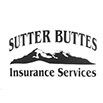How Much Should You Pay for Renter’s Insurance and How Much Should it Cover?
May 28, 2015
Whether you have been asked by your landlord to obtain renter’s insurance or are independently obtaining a policy to protect yourself against liability, there are a few questions you’re probably asking yourself: What is renter’s insurance? How much is renter’s insurance, and how does it differ from owner’s or condominium insurance?
There is one basic difference between homeowner’s insurance and renter’s insurance. Whereas homeowner’s insurance covers damages to the building as well as its contents, renter’s insurance covers your belongings and the events in which you are the liable party (for example, injury to your guests).
In most cases, your landlord will have their own insurance policy as well as a tenant contract with you that determines who pays for damages to the structure of the building.
Renter’s insurance coverage also differs slightly from condominium insurance. Condominium associations have their own master policy that covers damages to the structure of the building and common areas, like swimming pools, but the condo owner covers their own unit for things like plumbing.
In short, like other insurance policies, renter’s insurance is designed to protect you and you property financially from accidents and unexpected damages. Because the renter is not the homeowner, renter’s insurance simply bypasses coverage for damage to the house itself.
A renter’s policy covers liabilities like:
- burglary and theft of items in your home
- damage to your property from natural disasters
- mechanical failure for which the landlord is not liable
- medical coverage for personal injury of guests who are hurt in your apartment
What’s more, renter’s insurance policy often comes with added coverage. For example, a policy will often cover your small business if you work from home and your watercrafts, golf carts, snowmobiles, and other non-standard vehicles, even when used off premises.
The area you live in, as well as the amount of assets you want to protect in your possession are just some of the things that can affect the price of your policy. When you meet with an agent, they will review your circumstances and can discuss different factors and options to consider to find a solution to best fit your needs.
For more information about how renter’s insurance can keep you protected, visit the renter’s insurance page at our site. Our agents are also happy to answer any questions you might have; feel free to contact the one nearest you for more information.
The content available via Grange.com is for informational purposes only and may not be used for any other purpose. Content provided or expressed on Grange.com, including that of third parties, may not reflect Grange Insurance Association’s (GIA) policies or conform to any agreement you may have with GIA and its subsidiary companies. Please contact a licensed insurance agent to obtain particular advice.


































































































































































































































